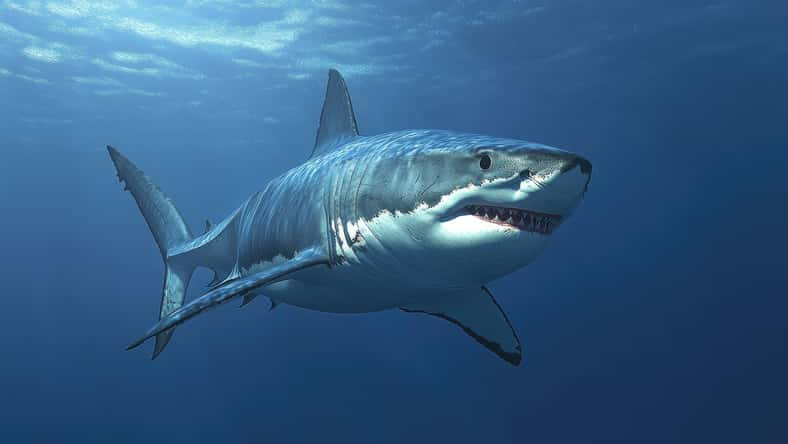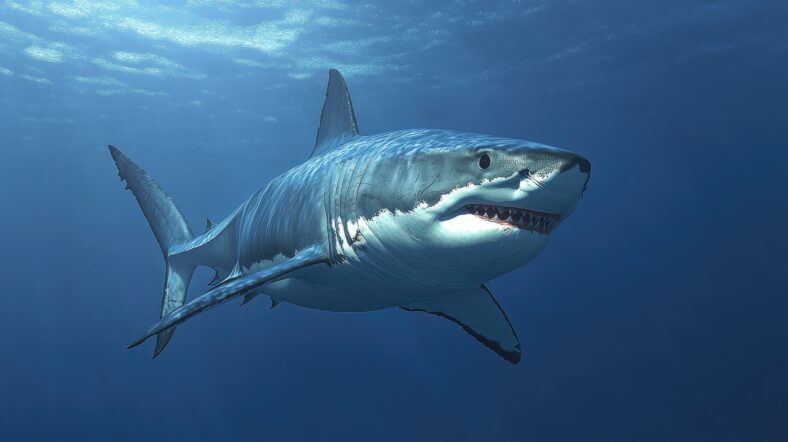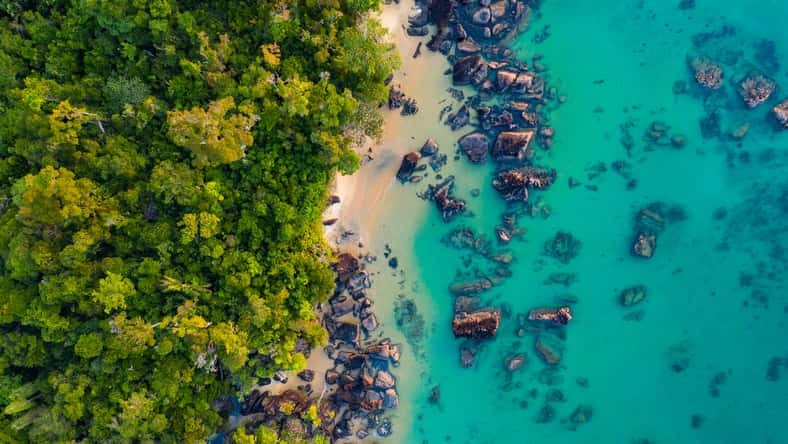
Sharks have the unique ability to replace their own teeth, with new ones growing in as they use up their current set. They rely on their teeth for catching prey. But as oceans continue to grow more acidic, this ability will become weaker.
Researchers from the Heinrich Heine University in Germany examined shark teeth under different levels of ocean acidification and found that more acidic ocean water causes shark teeth to corrode.
“Shark teeth, despite being composed of highly mineralized phosphates, are still vulnerable to corrosion under future ocean acidification scenarios,” said Maximilian Baum, the first author of the study and a biologist at Heinrich Heine University.
“They are high developed weapons built for cutting flesh, not resisting ocean acid. Our results show just how vulnerable even nature’s sharpest weapons can be.”
Ocean acidification is the ongoing decrease in the ocean’s pH value, resulting in more acidic water. It is mainly driven by the release of human-generated carbon dioxide.
Since the Industrial Revolution, humans have been releasing carbon dioxide into the atmosphere. About a third of that gas ends up in the ocean.
The average pH of the ocean surface has fallen from approximately 8.15 to 8.05 between 1950 and 2020. The change may seem small, but it actually has a major impact on the world.
For the study, the researchers obtained 600 blacktip reef shark teeth, which were shed in an aquarium. They soaked 16 samples in the current ocean pH (8.1) and in the projected future pH (7.3) for a span of eight weeks. At the rate things are going, the pH of the world’s oceans is expected to drop to 7.3 by the year 2300.
Thirty-six more teeth were used to measure the before and after circumference. Then, the research team looked at the teeth from the pH experiment under electron microscopes.

Sign up for Chip Chick’s newsletter and get stories like this delivered to your inbox.
The teeth exposed to the more acidic water appeared more brittle and weak. They were also larger in circumference due to surface erosion.
“We observed visible surface damage such as cracks and holes, increased root corrosion, and structural degradation,” said Sebastian Fraune, the senior author of the study.
In order to breathe, blacktip reef sharks must swim with their mouths open at all times. That means their teeth are constantly exposed to water.
If the water is too acidic, the teeth are automatically damaged. The damage to their teeth can negatively affect the way they hunt and feed.
Overall, the study is a stepping stone toward understanding just how badly future conditions might be for one of the ocean’s top predators.
Sharks are among the most ancient species still living on Earth. They have persisted through several mass extinctions. Maintaining the current average ocean pH of 8.1 may be necessary for their survival.
The study was published in the journal Frontiers in Marine Science.












